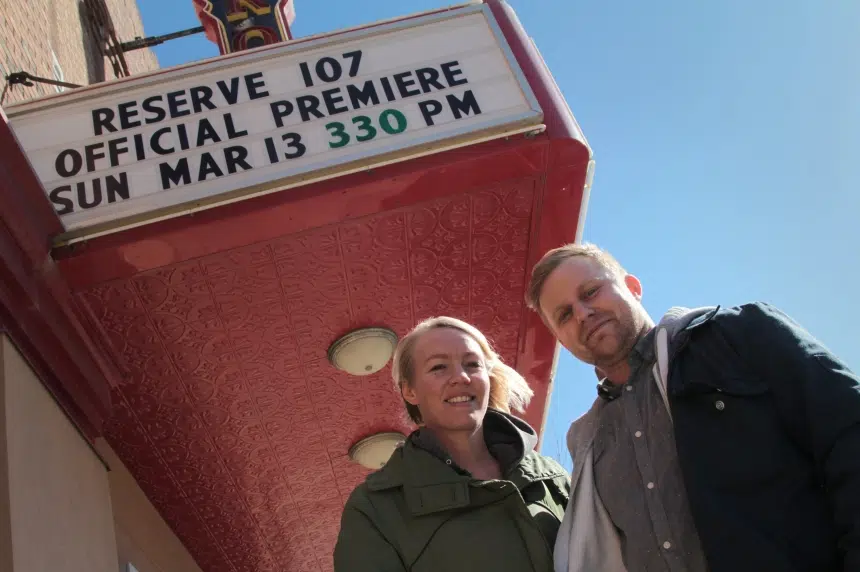First Nations land claim disputes don’t often have a happy ending, but a new documentary has shown what’s possible when communities come together to find reconciliation.
Rebel Sky Media’s ‘Reserve 107’ premiered at the Roxy Theatre in Saskatoon Sunday. The 32-minute film follows the Young Chippewayan First Nation (YCFN) as they work with the small community of Laird to reconcile the theft of their traditional Treaty 6 lands.
“What we did get to capture on film was a real sense of wanting to work together to recognize for all parties their treaty responsibility to solve this issue,” director Brad Leitch said.
Laird, located 70 kilometres north of Saskatoon, sits squarely on the traditional lands of the YCFN. The 30 square kilometre plot of land was granted to the First Nation in 1876. In the midst of famine and the 1885 North-West Rebellion resistance, then chief Young Chippewayan led his people on a buffalo hunting expedition further south. Fearing blowback from the rebellion, the Chippewayan people scattered to nearby communities in Prince Albert and North Battleford.
In 1897, unbeknownst to the First Nation, Ottawa took the land and gave it to a group of Mennonite and Lutheran settlers.
More than 70 years later, Chippewayan descendants returned to the town claiming ownership of the land. Rather than run them out of town, the community members took what the men had said and began to research the history of their home.
In 2006 the community held a formal gathering at the Stoney Knoll to commemorate the 130th anniversary of the Treaty 6 signing and pledged to work towards reconciliation and friendship. They have also raised $60,000 to trace the lineage of the remaining band members.
Leitch picks up the story in 2014 as the community continues to work towards its goals. The project began last June and was filmed over the course of a few weeks.
“It shows the beauty of reconciliation between people, but I think there’s also an element of it kind of shaming the government’s lack of involvement in this and hopefully puts some pressure on a potential future land claim being resolved,” Leitch said. “Canada and Canadians have a responsibility to this history. These are treaties that were signed with the crown.”
Leitch acknowledges the documentary was originally commissioned and that the film is edited and directed by a non-First Nations person, but says he worked to gather input from the descendants and incorporate culture into all aspects of the documentary.
The movie will make its American debut in Mankato Minnesota next week and Leitch has submitted it to several film festivals.
“I think this story can provide a model of how communities work together,” he said. “I hope that it inspired others to look at the history of the land that they live on and to learn about their own culture.”











